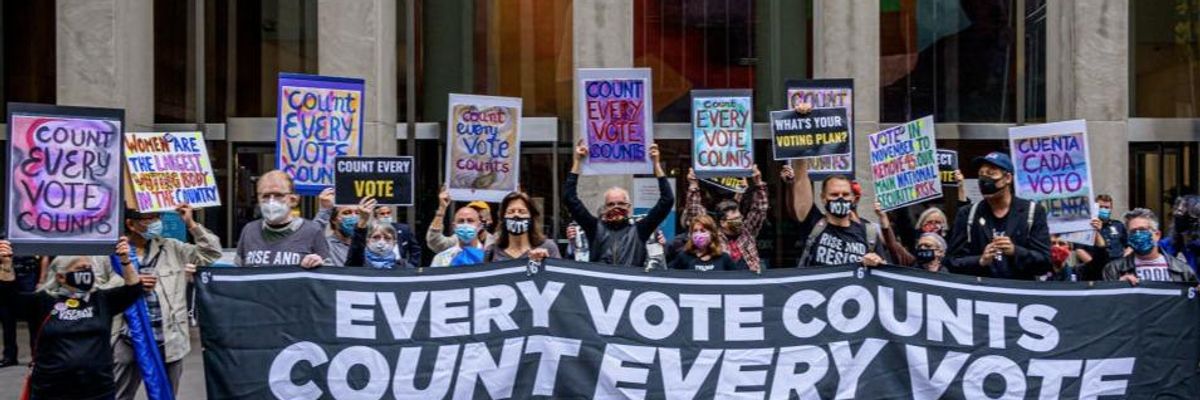In a blow to President Donald Trump's reelection campaign and the Republican National Committee in a crucial swing state, the Pennsylvania Supreme Court ruled unanimously on Friday that counties cannot reject mail-in ballots because voters' signatures do not resemble the way they signed when registering to vote.
The court's two Republican justices joined their five Democratic colleagues in the ruling (pdf), which came in response to Pennsylvania Secretary of State Kathy Boockvar's request for clarification of the state's vote-by-mail rules.
"[We] hold that county boards of elections are prohibited from rejecting absentee or mail-in ballots based on signature comparison conducted by county election officials or employees, or as the result of third-party challenges based on signature analysis and comparisons," the decision stated. "We conclude that the Election Code does not authorize or require county election boards to reject absentee or mail-in ballots during the canvassing process based on an analysis of a voter's signature."
Boockvar's office issued guidance (pdf) last month prohibiting election officials from discarding ballots due to signature inconsistency alone.
"If the voter's declaration on the return envelope is signed and the county board is satisfied that the declaration is sufficient, the mail-in or absentee ballot should be approved for canvassing unless challenged in accordance with the Pennsylvania Election Code," the guidance stated. "The Pennsylvania Election Code does not authorize the county board of elections to set aside returned absentee or mail-in ballots based solely on signature analysis by the county board of elections."
Trump and Republicans had argued that matching signatures on mail-in ballots to those on voter registration rolls is necessary to prevent fraud.
Pennsylvania Attorney General Josh Shapiro, a Democrat, hailed the ruling as "another win for voters."
"Voters who use a mail-in ballot have their identity verified in the initial application, often using a driver's license number," Shapiro said in a statement. "Pennsylvania's voter identification system is safe and secure. We are protecting every eligible vote and ensuring each is counted. Make your plan to vote and we will keep doing our work to make sure your voice is heard."
Friday's decision was the second triumph this week for Democrats and voting rights advocates in the Keystone State, which Trump won by 44,292 votes, or 0.73%, in 2016. According to the latest RealClearPolitics average of 11 national polls, Democratic presidential nominee Joe Biden enjoys just over a 5% lead over Trump.
On Monday, a deadlocked U.S. Supreme Court let stand a Pennsylvania court ruling permitting the battleground state's election officials to count mail-in ballots that arrive up to three days after November 3.




